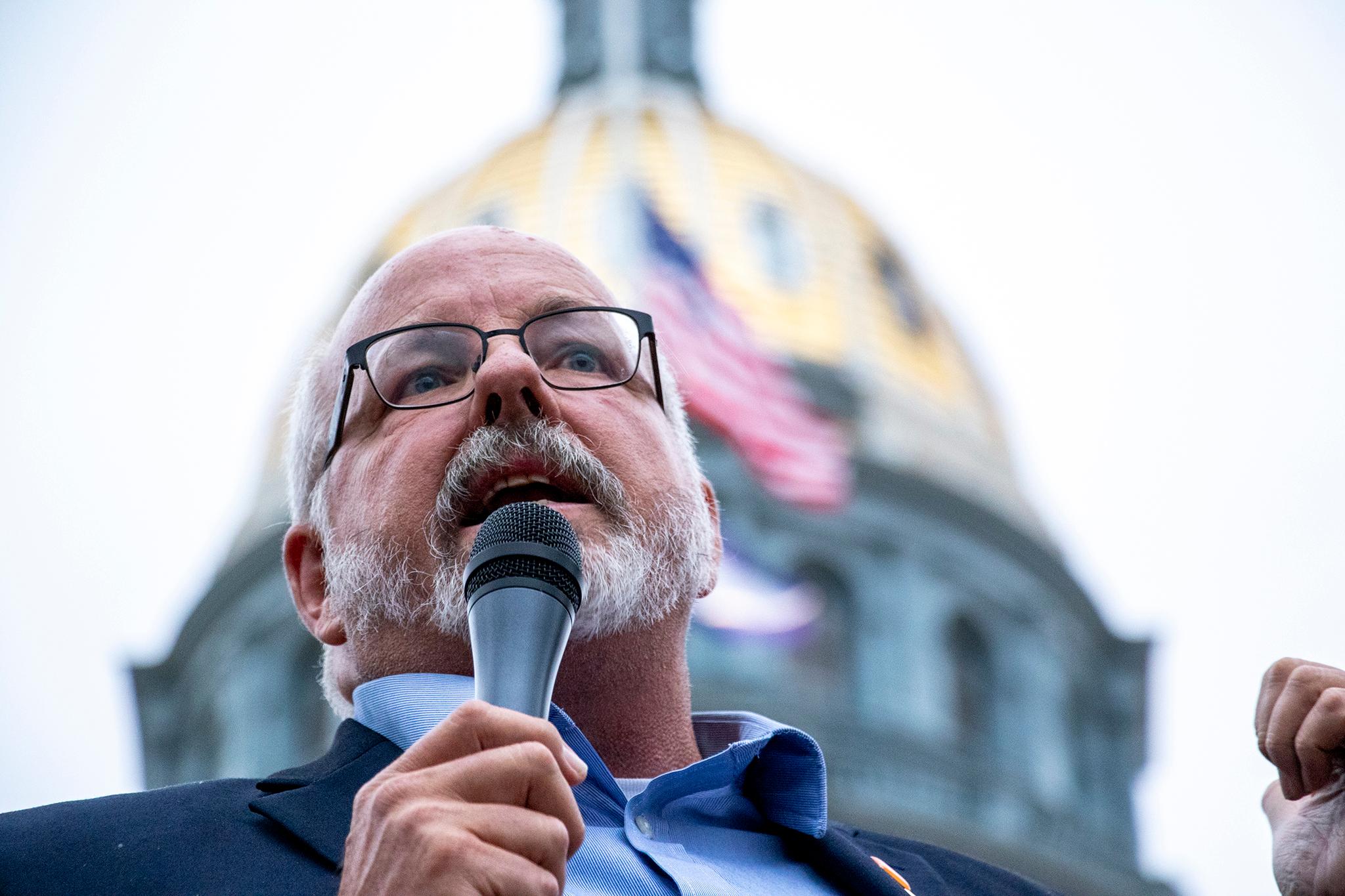
Updated 7:30 a.m.
Any major push to pass an assault-style weapon's ban in Colorado is looking increasingly less likely, with the legislature's highest-profile advocate for stricter gun laws saying now isn't the time.
“It diverts all of the attention,” said Democratic Rep. Tom Sullivan of Centennial.
Instead, Sullivan wants to focus efforts on policies he believes would be more effective at preventing gun violence. Technology, he said, can circumvent bans on specific types of weapons.
“They work around it, with printers at home, or ordering piece by piece, that has no serial number on it,” he said. “And they manufacture something that could be deemed an assault weapon.”
These so-called "ghost guns" are one of the items President Joe Biden announced executive action on from the White House. The president is also looking at model legislation on a national "red flag" law and regulations on stabilizing braces.
Sullivan got involved with politics after his son Alex was killed in the 2012 Aurora theater shooting. He's sponsored several gun bills, including Colorado’s 2019 red flag law and one this session to require people to report lost and stolen firearms. He worries that if members of his party introduced a bill to ban assault-style weapons, it will make it harder to pass other reforms.
“I've had this conversation, since the day Alex was murdered,” Sullivan said about the debate about what policies to push for. “It’s a slow process, again, like all of the major changing legislation that is gripping our country, from voters rights and women's rights and LGBTQ rights, civil rights and racial equality. Those all take a lot of time. And, you know, I believe that we're on the right path.”
For a ban to be effective, Sullivan believes it would have to happen at the federal level.
“I mean, if we were to ban something here, it'd be very easy to go to any of the surrounding states.”
Some Democratic lawmakers began discussing the possibility of pushing for a ban after 10 people were killed at the Table Mesa King Soopers in Boulder on March 22. The accused gunman allegedly used a Ruger AR-556 pistol, with a brace that makes it operate more like a rifle.
Democratic Gov. Jared Polis told CPR’s Colorado Matters that he is not focused on the type of firearm that was used in the massacre. Instead, Polis would like Colorado to strengthen universal background checks.
“What's striking from this case is — how was this young man, who had a prior history of violent offense, able to legally buy a gun?” asked Polis. “I think he had two guns, right? I'm not concerned about the model of the gun at this point. Why was he able to buy a weapon when he had a recent conviction for a violent offense?”
The accused shooter, Ahmad Alissa, was arrested in 2017 on a misdemeanor assault charge, pled guilty and spent a year on probation. That criminal history was not enough to prohibit him from legally buying a gun under current Colorado law.
Polis said he wants lawmakers to discuss what would have “the biggest impact on keeping people safe.”
“Let's look at the classification of violent offense that prohibits you from purchasing a gun, at least for a period of time, maybe a decade, maybe five years.”
Colorado passed universal background checks in 2013, after the shootings in Aurora and at the Sandy Hook Elementary school in Connecticut. That year the state also passed a high capacity magazine ban. More recently, Polis signed the so-called “red flag” gun law that allows the courts to temporarily remove firearms from people who are determined to be a danger to themselves or others. Polis said that law could be even more effective.
“(It) could have been used in this instance. Family didn't know about it,” said Polis. “We need better outreach. It's been mostly used by law enforcement. We'd like to make sure that families know about it — when parents see their kid with a gun and they're worried about their mental state, and they're showing signs of risk, an extreme risk protection order can be a great tool.”
Even without Sullivan’s discouragement, moving forward with an assault weapons ban would be a tall order for Democrats in the state.
At least two other statehouse Democrats are likely to vote against any such bill. One of them is Senate President Leroy Garcia, who was among the few Democratic lawmakers to oppose the red flag law. He argued the policy does not respect the “rights of responsible gun owners.”
During a town hall shortly after the Boulder shooting, Senate Majority Leader Steve Fenberg, whose district includes the King Soopers where the mass shooting occurred, alluded to how tough it would be to pass a ban, even with Democrats in charge of the state government.
“The Boulder County delegation, probably the vast majority of the Denver delegation, are supportive of the most absolute, most aggressive policies one could come up with when it comes to gun violence prevention,” Fenberg said. “Obviously to get it passed, we need more than just us.”







